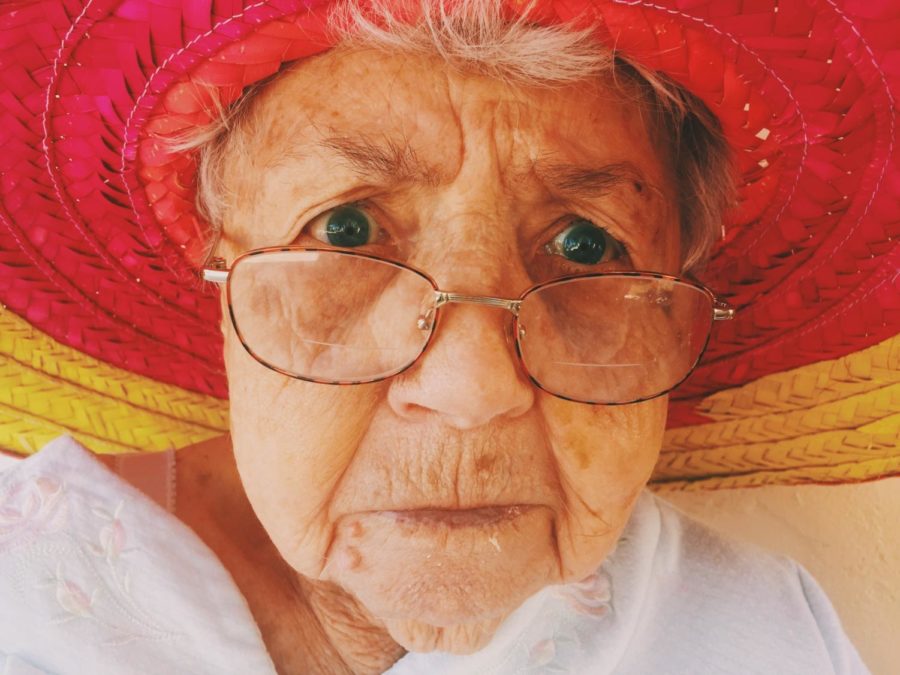Obscure holidays are worth celebrating
Unsplash
Nearly every day of the year is linked to its own holiday or remembrance. National Gorgeous Grandma Day, celebrated on July 23, is when people tell their grandmas how gorgeous they really are.
February 13, 2023
Ever heard of Elm Farm Ollie? On Feb. 18, 1930, this Guernsey cow was milked midair on the 72-mile flight from Bismarck, North Dakota to St. Louis, Missouri. Ollie had been selected for a scientific study on whether cows’ milk production changes at a height, and while the idea of in-flight milking never really caught on, her efforts are commemorated every Feb 18 with Cow Milked While Flying in an Airplane Day.
Ollie’s legacy isn’t the only strange custom celebrated on Feb. 18. It’s also Pangolin Day, Hate Florida Day, Pluto Day and Eat Ice Cream for Breakfast Day, among countless others. In fact, nearly every day of the year is marked by some obscure observance.
Sheila Cicchi has been cataloging such holidays on her website, Brownielocks, since 1999. As the creator of two holidays herself – Brownielocks Day and Learn Your Name in Morse Code Day – she has seen firsthand how these observances bring people together.
“My website began as a creative outlet since my interest has been in art primarily, and graphic art wasn’t around when I grew up, so I started to teach myself that,” Cicchi said. “It’s a family now. People want to know […] what the day is about other than what’s going on in their routine life.”
For those uninterested in history, spending time learning about past events every day can seem like a bore. But understanding traditions and cultural diversity is a valuable skill. According to Forbes, recognizing multiple points of view is necessary for the development of critical thinking, which in turn has been defined by a 2016 study as “essential for absorbing knowledge as well as for work performance”. Being exposed to lesser-known cultural observances will thus help people become more well-rounded thinkers.
Not only do these holidays teach people about other cultures, but they also help them connect to their own heritage. For example, Jan. 24 is the World Day for African and Afrodescendant Culture, where people celebrate their African roots in talks and online posts.
Outside of cultural enrichment, many holidays are used to raise awareness for a specific cause.
“I’ve discovered more diseases [than I ever] knew existed from this site,” Cicchi said. “People have written that their child, father, mother, et cetera has this disease or it’s that disease month […] and would I add it.”
Rare Disease Day (Feb. 28), for example, was founded in 2008 to advocate for patients suffering from rare diseases and educate the public about their impact. Each year, they host virtual and in-person events around the world. Other examples, such as National Women’s Physicians Day and Key Deer Awareness Day, bring attention to relevant topics that might be overshadowed during the rest of the year.
But a holiday need not have a grand purpose to be noteworthy. There is no deeper meaning behind What if Cats and Dogs Had Opposable Thumbs Day, but the humorous concept is enough to make people smile every March 3. Take Your Houseplants for a Walk Day (Jul. 27) might seem ridiculous, but it’s also an excuse to go outside and simply have fun.
“People just want to smile,” Cicchi said. “And having a silly observance as some reason to brighten the day matters.”
According to a 2012 study, people who demonstrate higher levels of “appreciation” show significantly higher life satisfaction, and happiness promotes health.
Obscure holidays are the perfect starting point to find something, however small, to make every day worth celebrating. Spend some time discovering these observances. Or better yet, create your own, marking significant memories that you’ll appreciate year after year.






